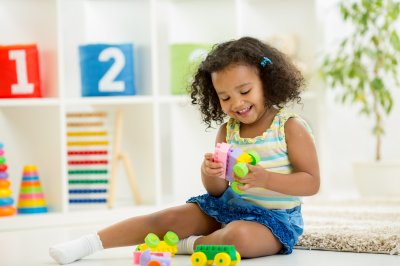The Learning in Loose Play items
In a world in which we are preparing our youngsters for jobs, it is imperative to fuel children’s curiosity and appetite for learning. This love of learning, along with the skills to communicate, problem-solve, and self-regulate, will lead to life-long success no matter the profession. Some might say that learning these skills will only happen behind a desk in a typical classroom, but educational research tells us that children who spend time in well-designed, nature-filled outdoor classrooms develop skills across all learning domains.
This finding is based on over a decade of research. It also adds to the growing body of evidence that substantiates that, for young children, play is learning, and intentionally designed outdoor spaces provide powerful contexts for children’s growth and development. What makes an outdoor classroom different than the traditional classroom? For one thing, the availability of nature’s loose parts.
This is why, at Claylands Nursery, we keep a large stock of loose items in the garden such as planks, logs, crates, steering wheels, cones and other loose items which enable the children to play in an imaginative and open ended way.


 “Water is one of the basic raw materials for purposeful play. Just like sand, clay and blocks, children can use water without being constrained by the one right way to use it,” writes Sandra Crosser, Ph.D.
“Water is one of the basic raw materials for purposeful play. Just like sand, clay and blocks, children can use water without being constrained by the one right way to use it,” writes Sandra Crosser, Ph.D.